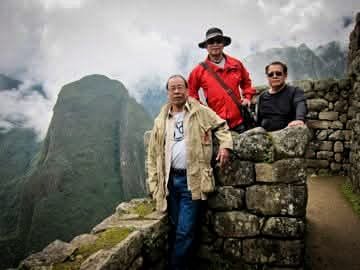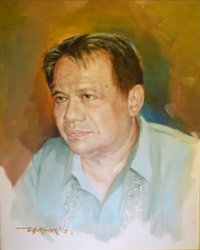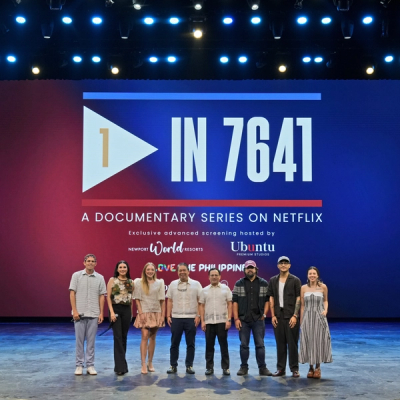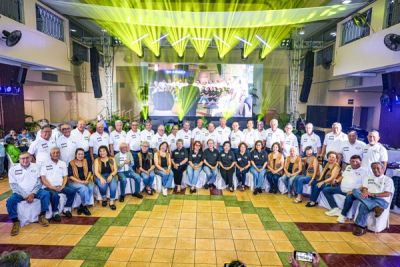News
A Prayer in Stone and Cloud

The highlight of our trek to South America is, of course, Machu Picchu, and I had intended to write about it at the end of our journey. However, the intense fervor and excitement of our experiences have crossed my mind, and I realize that if I do not document them now, I might lose them forever. So, Machu Picchu, here we come.
Don Carlos, formerly known as Chibu, our leader and IF, brought us to Cuzco for two days, not only to acclimate us to the high altitude and cold weather, but also to prepare us for the trek. No alcohol, just walking up and down the streets of Cuzco. A very tall order considering the circumstances, but Tong and I are obedient disciples. The streets of Cuzco are very narrow, embedded with cobbled stones, and muchas subidas y bajadas (many ups and downs), just the proper exercise for me to huff and puff. But the joy of discovering new places and the challenges our taste buds had to face in different cuisines, much overshadowed the arduous task of preparation.
Cuzco is no place to scoff at, for it has its own provincial charm and enchantment and could easily rival those of the European counterparts. As nighttime creeps in, the Plaza Armas throbs and pulsates, with the mountains providing a backdrop, dotted with lights that seem uniformly arranged, like a Christmas tree, mischievously teasing the stingy Peruvian skies to let the stars shine. Cuzco's weather is punishing at night, its biting cold pierces through the bones, and it is not even winter.
With great anticipation, the trip to Machu Picchu began with an uneventful two-hour car ride to Ollantaytambo, which was similar to any provincial ride in the Philippines. I was truthfully scared that going out of my comfort zone would be a disappointment. But the two-hour train ride was reassuring. The train route was along the Urubamba River, which acted like a guide, for wherever it flowed, the train followed. The river was huge and winding as it snaked through an array of mountains as if it was jealously guarding the splendor and the magic the mountains exuded.
I was enthralled by the enigmátic behavior of this river, for unlike other rivers that flow from the mountains, this river flows towards them, and along the way, most of the time, the flow was gentle, but in other parts, it warned one that it can be dangerous as a rampaging bull. Ah, such a magical display of nature! The mountains, not to be outdone, showed faces of humanity; some rough along edges, brutal and dangerous; some softly covered with greens and very pleasing to the eyes. I have never seen such a huge gathering of mountains. And we have not even reached Machu Picchu.
We nestled through the night at the foot of a mountain, in a small town called Aguascalientes. The next day, we were up very early as we fully wrapped ourselves against the predicted harsh cold weather and took the nearly two-hour bus ride going up the mountain. It could very well be much like the scenery of the Davao - Bukidnon road, zigzag and winding along lush vegetation and picture-perfect greens all over, but the mighty Urubamba river was still making itself visible, guarding the mountains as if to remind us tourists that Machu Picchu belongs to Pachamama.
We checked in at the gate at eight, and as we entered a hundred meters, a feeling of tranquility and solemnity enveloped my whole being. It seemed that Machu Picchu and its tribe were asleep, covered by blankets of clouds, protecting them from the harsh cold. We went around the building of rocks with a trained guide, in awe and admiration at the genius of the Inca civilization, knowing fully well that what they had in their time was beyond imagination to build such a masterpiece of engineering marvel.
We then witnessed a very dramatic scene, done with quiet dignity, the slowly lifting of the clouds, as the sun lazily and slowly rose, revealing the full beauty of Machu Picchu, beyond compare. It was a sight to behold as I developed goose pimples, proudly feeling part of the glorious ceremony even as a spectator. In agreement with that moment, Tong was on the edge of tears.
We slowly trekked to the highest peak of Machu Picchu to savor its full grandeur, and I really had to huff and puff as I was not only carrying my weight but also my age. Tong and Don Carlos doted on me and patiently waited several times to catch up with them. My jacket was even getting heavier, so I had the guide carry it for me.
I summoned every ounce of my strength to reach the top, and my efforts were more than paid for. I thought I would feel like a conqueror, but no, I felt the place was too sacred to feel proud; instead, I was humbled. I said a prayer, especially for my grandson, who was celebrating his birthday, and for all five grandchildren, that they too would have the same privilege I had to witness Machu Picchu.
We lingered on for several hours, and at 2:30, as we lined up for the bus ride, I asked myself why I felt different about Machu Picchu than I did about the rest of the ruins I had seen, including the ruins of Pompeii in Italy and the Parthenon in Greece. Something tells me that Machu Picchu tugged my heart.
Don Carlos aptly put it as he described Machu Picchu, which Tong heartily agreed with:
"After you, there is none to give tomorrow's love."
About the Author

Gari M. Tiongco '62
Gari M. Tiongco ’62 was an alumnus of the UP College of Law and served as President of the UP Alumni Association from 2006 to 2009. A gifted writer and raconteur, he chronicled the lives of personalities and brods in his constellation with warmth, wit, and precision. His essays, whether about faraway journeys or familiar faces, were always deeply human and beautifully written. He passed away in August 2020, but his storytelling continue to ring true.


